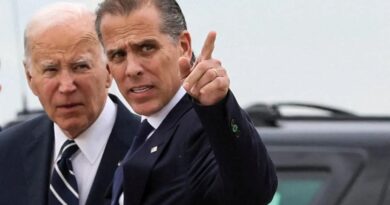How Argentina’s Javier Milei Disproved the Elites’ Theory

As the November 2023 presidential election in Argentina approached, a group of a hundred influential economists from across the globe—among them progressive icon Thomas Piketty—released an open letter cautioning that “radical right-wing economist” Javier Milei would bring about “devastation” and societal chaos.
Interestingly, they expressed this as though it were a concerning outcome.
At the time of Milei’s surprising election win, Argentina—once considered one of the wealthiest countries—was grappling with a poverty rate exceeding 40% and ranked third globally in inflation.
Following years of Peronism—a harmful blend of fascism, socialism, and unionism—the nation had effectively bankrupted its central bank, with the peso plummeting rapidly.
Think your mortgage rates are steep? Argentina faced interest rates soaring to 118% just weeks prior to the election.
The country was on the brink of becoming another Venezuela. Indeed, Milei’s radical changes were aimed at dismantling the current system.
In the aftermath of his unexpected victory, political scientist Ian Bremmer cautioned that “economic collapse is imminent.”
Felix Salmon, Axios’ chief financial correspondent, suggested that Milei’s policies might thrust Argentina into “a deep recession.”
Fast forward seven months, and Argentina emerged from the recession that had set in before Milei seized power.
The unconventional economist, nicknamed “el Loco” by friends, moved ahead with his plan for “shock therapy,” focusing on combating inflation through spending cuts and economic deregulation.
Contemporary Western governments frequently claim they can escape economic hardships by increasing spending, often exacerbating the situation.
Anyone advocating for free-market economic principles as a better long-term strategy typically has to rely on hypothetical scenarios.
This sentiment explains why many elites hope for Milei’s failure: He threatens to invalidate their beliefs.
Rather than the typical alarmist narratives surrounding “austerity,” which usually amount to petty reductions in spending growth, Milei’s approach was drastic—closing 13 government entities and laying off over 30,000 public sector employees, roughly 10% of the federal workforce.
This represented an unprecedented political transformation, slashing Argentina’s federal budget by 30%.
Even if the Department of Government Efficiency achieved everything that figures like Elon Musk and Vivek Ramaswamy propose, they likely wouldn’t approach cuts of 3%, let alone 30%. Such austerity measures have not been observed in any Western economy.
By May 2024, Argentina marked its first quarterly budget surplus since 2008.
Inflation, while still significant, plummeted from a crippling 25% at the end of 2023 to 2.4% by year’s end in 2024. Furthermore, the per capita salary—previously in decline—is now on the mend.
Milei is often labeled a “right-wing populist,” “far-right outsider,” and “far-right libertarian.” In contrast, the fascist Peronists, socialists, and unionists who dismantled one of the richest nations are seldom categorized similarly.
Granted, Milei exhibits some populist tendencies. However, this distinction makes him a genuine and refreshing challenge to the established global order.
Unlike many other nationalistic leaders today, Milei isn’t leveraging his authority to shift state power from the left to the right.
Instead, he’s reducing the state’s power and curtailing its control over individuals.
How many world leaders can claim to have done that? Not many, if any at all.
A man who believes that “the state was invented by the devil, and God’s system is the free market” likely possesses a moral conviction that enables this path.
However, a single year cannot reverse the consequences of 80 years of economic decline. Due to spending cuts by Argentina’s government, which led to superficial work held up by a weakening peso, the economy contracted by 3.5% in 2024.
JP Morgan and the World Bank have both forecasted that its GDP will rebound by approximately 5% in the coming year.
Milei is more than just an economist at the helm.
He has asserted that the West “is in danger,” as he called out the elite at Davos, arguing that modern environmentalism, radical feminism, and social justice are deteriorating the moral fabric of the West and ushering in socialism “and, consequently, poverty.”
At the General Assembly, Milei criticized the United Nations and announced that Argentina would abandon its longstanding neutrality in international discourse, siding with nations in similar struggles. This positioning swiftly elevated Argentina as one of Israel’s staunchest allies within the UN.
Remarkably, Milei continues to enjoy an approval rating exceeding 50%, roughly the same figure he held during his election win.
Considering the entrenched dependencies and special interests within Argentina’s political framework, it’s astonishing that he was elected in the first place.
Nonetheless, his ongoing success is no accident. Free markets deliver results.
David Harsanyi is a senior writer at the Washington Examiner. Twitter @davidharsanyi



